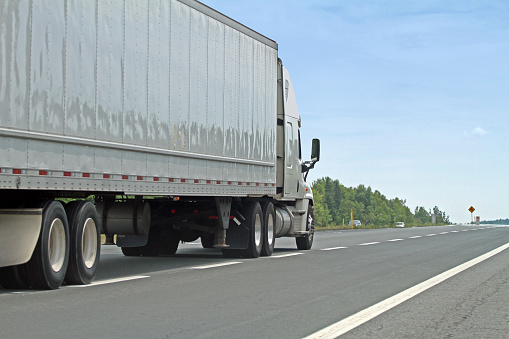
Truck accidents involving passenger vehicles – especially compact and subcompact cars – can be deadly. In a collision with a tractor-trailer or semi-truck, the smaller car is no match for the big rig, which can weigh as much as 40 tons.
Intending to save lives in crashes, the National Highway Traffic Safety Administration (NHTSA) has issued new underride guard rules. According to an article in HDT Truckinginfo, the NHTSA completed a final rule upgrading requirements for rear underride guards or safety bars in the back of the trailer. The agency is now focusing on side underride guards.
Rear underride accidents typically involve a car crashing into the back of a tractor-trailer. The new standard requires rear impact guards “to provide sufficient strength and energy absorption to protect occupants of compact and subcompact passenger cars,” striking the back of trailers at 35 miles per hour, the NHTSA stated. The previous rule was for 30 mph.
Are underride truck accidents common?
The new rule may save lives and reduce the risk of serious injury in trucking accidents. Underride accidents are among the most devastating types of crashes between cars and tractor-trailers. These rear-end accidents typically involve 18-wheelers stopping or slowing down without warning. As a result, the driver in the car behind the truck may not have enough time to react, crash into the truck, and get trapped under the trailer.
Another type of underride accident involves are car striking the side of the truck's trailer. A side underride accident sometimes occurs when a tractor-trailer makes an illegal turn, and the other motorist strikes the trailer.
Tractor-trailers currently are not required to have safety bars along the side of the truck. The NHTSA, however, is exploring new rules that could lead to mandatory side underride guards, according to the Truckinginfo article.
The following are some common causes of deadly underride accidents:
- Lack of appropriate truck lighting, which in dark or poor weather conditions can reduce the truck's visibility.
- Truck drivers who are speeding, texting, or otherwise being reckless and then suddenly stop or slow without warning.
- Poor truck maintenance (e.g., defective brakes, faulty steering, broken taillights, etc..)
- Lack of safety bar on the trailer.
How a truck accident attorney can help
An underride crash can lead to catastrophic injury and death. In some cases, occupants of cars sustain traumatic brain injuries, spinal cord injuries, and internal injuries. In addition, bone fractures, disfigurements, and burn injuries are not unusual in such crashes.
After a serious truck accident, victims may be unable to work and face skyrocketing medical bills. At the same time, the insurance company may not be willing to offer the compensation needed to cover the victim's losses.
That’s why you should talk to an experienced truck accident attorney to review your legal rights and options. Contact the Law Offices of Mark E. Salomone if you were injured or lost a loved one in a Massachusetts trucking accident. We know how to handle the insurance companies and fight aggressively for our clients. That way, you can focus on recovering while your attorney focuses on your claim.
Your consultation with the Law Offices of Mark E. Salomone is free. There is no obligation when you talk to us or complete the online contact form. In addition, we work on a contingency fee basis, which means you pay nothing unless we win.

